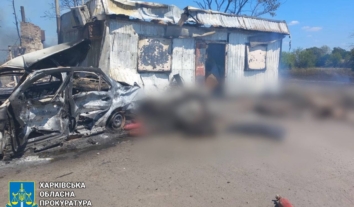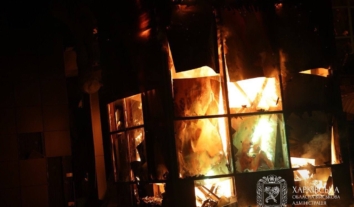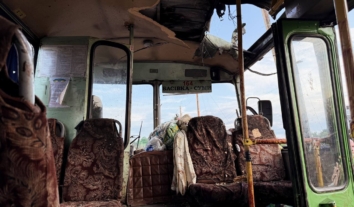68% of Ukrainians support lustration as a tool for restoring justice – poll
In achieving justice, 68% of Ukrainians consider lustration an effective tool for restricting access to state institutions for individuals who have compromised themselves by collaborating with the Russian occupiers. This was stated by human rights activist and partner at the “Azones” Law Firm, Darya Svyrydova, during the presentation of the results of a large-scale sociological study “Justice in the Context of Russian Armed Aggression,” conducted by the “Rating” Sociological Group commissioned by the ZMINA Human Rights Centre.
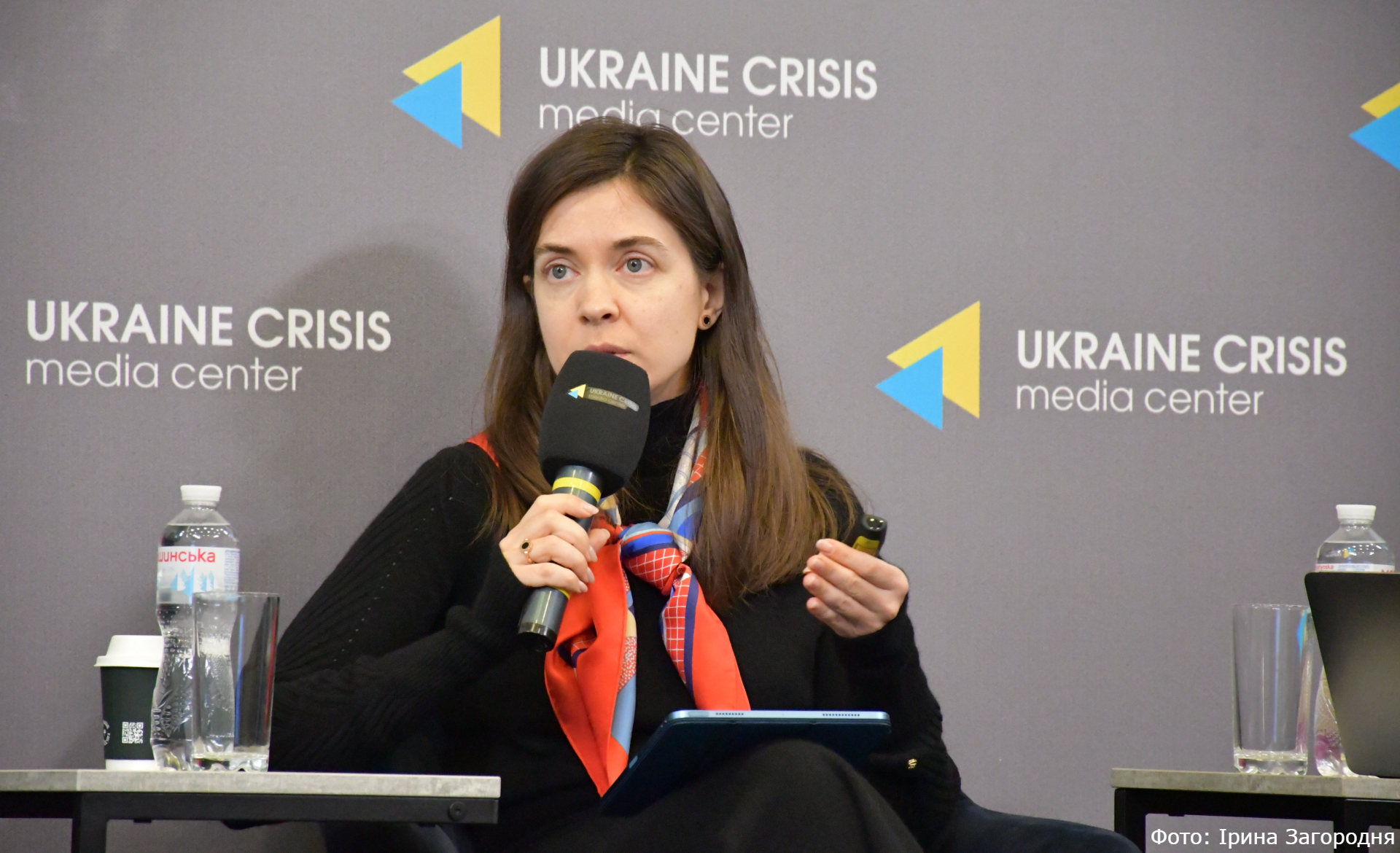 Human rights activist Darya Svyrydova
Human rights activist Darya SvyrydovaShe explained that Ukrainians, in various sociological surveys, have indicated that justice for international crimes committed in Ukraine is extremely important to them.
However, various studies show, for example, that collaborationism is an overly criminalized practice. Several criminal proceedings are considered in absentia, and society does not perceive such justice.
Human rights defenders have repeatedly stated that the Ukrainian state should not ignore other, different instruments of justice and implement them. One of these instruments is lustration.
In their large-scale study, sociologists inquired about Ukrainians’ attitudes towards this instrument and found that society is aware of the need to cleanse state bodies of those who cooperated with the occupation authorities but expects clear and transparent mechanisms for conducting lustration.
“Justice in the aftermath of the war is currently mostly reduced to legal proceedings, which obviously greatly limits the instruments for achieving such justice. Surveys in recent years have shown a long-term trend – the majority of respondents believe that lustration can be used as one of the instruments for achieving justice. Namely, through restricting access to government bodies for certain individuals who have compromised themselves by actively cooperating with Russia, and not just by living and working in an occupied territory,” said Darya Svyrydova.
Almost 70% of respondents said that the use of lustration is one of the effective tools for restoring trust in government bodies in the context of overcoming the consequences of the war.
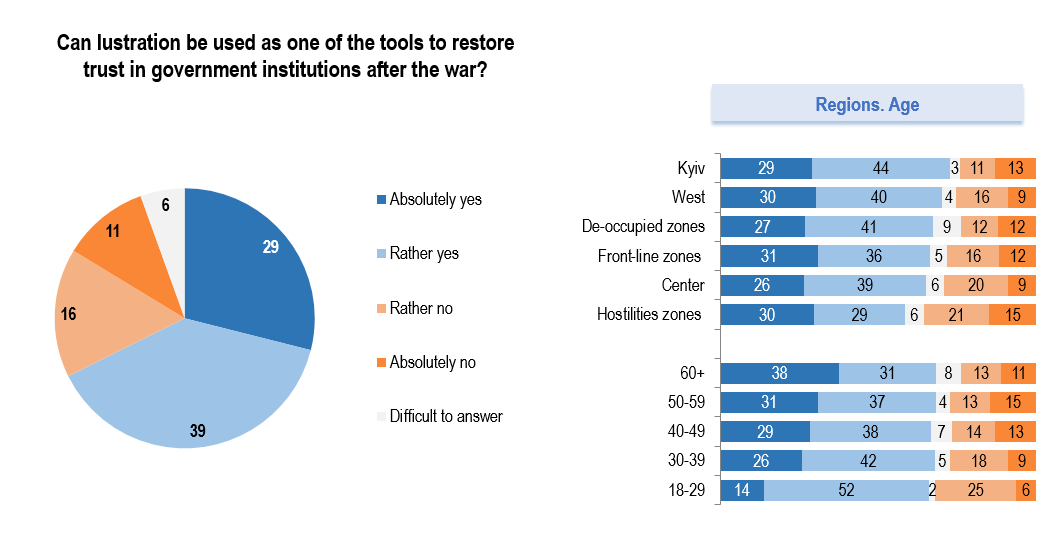
“Despite the fact that in the combat zone, this percentage is slightly lower, even there, more than 50% of respondents believe that this can be an effective tool for achieving justice,” added Darya.
Ukrainians have identified the categories of people that lustration should primarily affect.
According to respondents, lustration should be applied primarily:
- To individuals who were in the territory controlled by Ukraine and cooperated with or supported the Russian Federation (53%);
- To individuals who were elected as deputies or heads of an illegally created local government body in the occupied territory (51%);
- To individuals who worked in illegally created occupation bodies and administrations (50%).
“It is these three categories that citizens identify as sufficient to restrict access to the government institutions of the Ukrainian state. We have observed this trend in other sociological studies for a long time,” added the human rights advocate.
In total, 13% of respondents said that lustration should be applied to those who conducted business in the occupation and paid taxes there. 8% believe that this instrument should be applied to those who remained to live in the occupation.
Read also: Who residents of the liberated territories consider collaborators, and what are the nuances
“As we can see, these results show that the current criminal practice [regarding collaborationist activity] does not correspond to the vision of society and the demand for justice. The consensus of society is that doing business under occupation, living in the temporarily occupied territories (TOT), is not something that is condemned by society,” commented Darya Svyrydova.
Sociologists asked citizens to determine the positions for which lustration restrictions should be applied.
More than 57% say that such restrictions should apply to positions in state bodies, courts, law enforcement agencies, political and military positions.
According to the human rights advocate, this vision of citizens somewhat coincides with the general approaches and standards for the application of lustration.
“After all, lustration should concern those positions that primarily ensure trust in the state apparatus, in the apparatus that guarantees security in the state, and in those institutions that implement and protect human rights at the state level,” explained Darya Svyrydova.
Although lustration mostly concerns access to state positions or judicial and law enforcement bodies, sociologists investigated how people feel about lustration in professional and self-governing communities, where state intervention should not occur.
Darya Svyrydova pointed out that more than 70% of respondents believe that restrictions should not be applied in the future to citizens who remain to live in the occupation or to lawyers who continue their legal practice. However, the restriction of their rights can be assessed individually, considering their actions, if such a person cooperated with the occupation administrations.
At the same time, according to Svyrydova, the introduction of lustration will require the state to create a mechanism that will be based on adherence to the rule of law and a high level of trust in society.
Human rights defenders emphasise that the level of public trust and the corresponding consequences of this process will depend on how the instruments and mechanisms of lustration are developed.
Human rights defenders explain that they assumed there was a negative attitude towards lustration in society due to their previous experience of lustration as a not fully implemented process that began in 2014 under the Law “On Cleansing the Government.” However, the survey results surprised them.
Thus, 67% of respondents know or are well aware that such lustration took place in Ukraine and what its consequences are.
Of those citizens who are aware of this process, 60% stated that they have a positive attitude towards lustration and its consequences.
“That is, society sees that this mechanism allows for the restoration of justice and trust in government bodies compromised, in the case of the Russian-Ukrainian war, by cooperation with the occupation authorities or the Russian Federation,” Darya summarised and pointed to the high rate of citizens’ willingness to report known information about facts of cooperation of fellow citizens with the occupation authorities to the body that will conduct lustration.
The study revealed that society does not trust any of the existing government bodies enough to delegate the conduct of lustration to them. Therefore, 43% of respondents believe that a new state body with a high level of public trust needs to be created to implement lustration.
The lustration process must be based on international standards, including a collegial body with the participation of human rights defenders and an individual assessment of each person’s actions. Darya Svyrydova emphasises that restrictions cannot be applied solely based on the fact of being in the occupied territory.
Oleksiy Antypovych, director of the Rating Sociological Group, summarized: The study’s results showed a demand for a lustration instrument in society.
The study also revealed that Ukrainians believe that commemorating the war should be comprehensive and cover various forms – from the creation of museums and memorials to programs to support the families of the deceased. Experts emphasize the importance of public involvement and quality expert support.
Human rights defenders emphasize that, in the end, lustration and memorialization can become an important component of building a space of security in a society that is experiencing “terrible consequences of the war.”
As part of a large-scale sociological study commissioned by the Human Rights Centre ZMINA, researchers from the “Rating” Sociological Group interviewed 2,000 respondents by telephone (CATI) throughout Ukraine, except for the TOT, from January 3 to 12, 2025.
The error of the representative study with a confidence probability of 0.95 is no more than 2.2%.
On January 21, 2025, the Coalition of Human Rights Organizations, which deals with the protection of the rights of victims of armed aggression against Ukraine, announced 13 priority steps for the Verkhovna Rada and the Cabinet of Ministers in the field of human rights protection in the context of armed aggression against Ukraine for 2025.
In the document, human rights defenders called on the parliament to amend the Criminal Code, which would ensure compliance with the principle of legal certainty in bringing to justice those who engaged in collaborationist activity.
Human rights organizations stated that despite the importance of making changes, there is no thorough discussion of this issue in parliament.
In addition to clarifying the wording of Article 111-1 of the Criminal Code of Ukraine, it is worth considering the possibility of removing the least serious category of violations from the sphere of criminal justice, ensuring lustration measures, and considering the possibility of developing legislation on amnesty.

